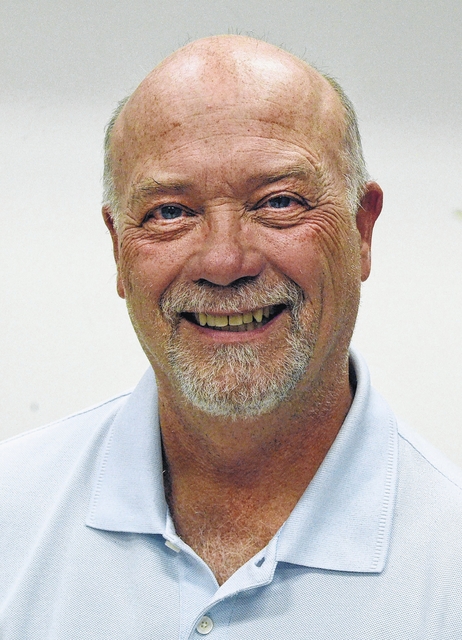Looking back at some of the odder small stories that streaked across the summer sky, there is one, to be honest, I almost missed myself were it not for a friend of mine, Harry Johnson, who filled me in on a game-show moment while he and I were watching Lima’s boys of summer, our Locos, play a mid-July game.
The reason I missed the story is because I just don’t watch as much TV as I used to watch. Unless it’s a movie I’ll stream or a live sporting event, I’ve found my life is somewhat enriched by not paying too much attention to programming like reality TV, series and game shows. So, I wasn’t tuned in to Jeopardy on June 13, when the hostess of that episode, Mayim Bialik, read aloud this question: “Matthew 6:9 says, ‘Our Father Which Art in Heaven,’ This ‘Be Thy Name.’”
Now, since that’s the first line of the most famous prayer throughout all of Christianity, it would be a logical assumption that all three contestants would know the word Bialik was asking contestants to put in the blank, and it would just be a matter of who hits the buzzer first, right? And, yet, not one of the three people even were able to offer a guess as all three buzzers remained mute.
Now, if you’re thinking the three contestants on that episode just weren’t the sharpest knives in the drawer, you may not know how difficult it is to qualify to appear on the show. There is a qualifying test that literally thousands of people take annually which is set up like the game show. The test includes 50 questions from 50 categories and can only be taken once a year. Many who yearn to be on the show do a great deal of study and take several practice tests before attempting the qualifying test. Each question has a 15-second window for answers before the nonresponse is counted wrong.
For those who’ve played along at home, and who among us hasn’t from time to time over the years, the kind of across-the-board knowledge that it takes to be successful would rule out the dull-knives theory.
I have a former student, Charley Moul, one of my all-time favorites and certainly one of my brightest, who actually appeared on the show a number of years ago. Charley is currently an economics professor at his and my Alma Mater, Miami University. After graduating from Miami magna cum laude, Charley received a PhD at Northwestern and has since authored dozens of articles on microeconomics, industrial organization and other econ-related subjects. In other words, Charley is like really smart, and, yet, he didn’t win when he appeared.
However, of one thing I’m certain. Doctor Charles C. Moul most certainly would have instantly buzzed in and, in the form of a question, answered, “What is ‘hallowed?’” And, I have enough faith in my readers I’ve gathered over the last two-plus decades of writing for my hometown paper to say pretty much every one of them would have buzzed in as well.
As for the deeper implications of this news blip from our summer of 2023, while it’s often hard to connect the dots between what’s happened and why it happened, I can’t help but wonder what these few seconds on a game show might suggest about people and their religious inclinations or lack thereof. I’m guessing that even those who haven’t seen the inside of a church in the last three or four Presidential rotations could still recite what has been called both the “Lord’s Prayer” and “Our Father.”
Much has been written in recent times on the topic of people and religion, and some of the numbers certainly should be concerning for church officials. In an article entitled “Why U.S. Churches Are on the Decline,” which appeared in January of this year in The Guardian, Alex Gabbatt, who authored the article, pointed out that in 2019, 4,500 Protestant churches closed while only 3,000 new churches opened.
Gabbatt went on to cite a Pew Research report that Americans who identified themselves as Christians had fallen to 64 percent in 2020, with 30 percent of America’s population identifying themselves as religiously unaffiliated.
Other research also indicates that Millennials, those born between 1981 and 1994, have distanced themselves from organized religion in larger numbers than other age groups. Much has also been written about the declining numbers of Catholics since stories have emerged on the church’s sexual-abuse scandal.
Again, seeing one brief moment in time as reflective of more significant trends can surely be rather specious, but, when my friend Harry told me about that one game-show moment back in June, it sure got me thinking about the possibility of connecting a couple of dots.
I can’t help wonder, were he here today, what Alex Trebek would privately have to say about this game-show moment.
John Grindrod is a regular columnist for The Lima News, a freelance writer and editor and the author of two books. Reach him at [email protected].







